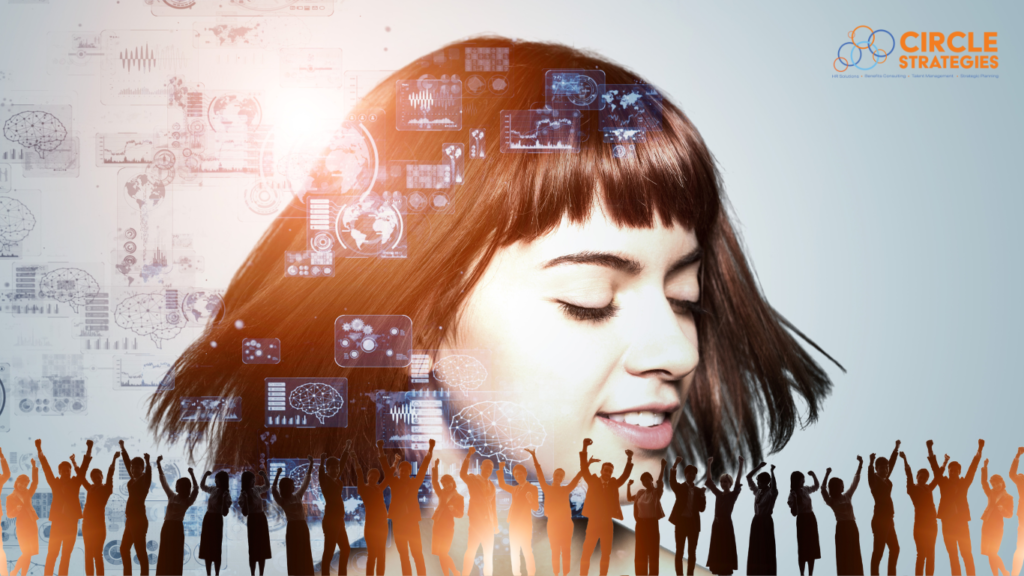In the realm of organizational management, Human Resources (HR) stands as a linchpin, orchestrating the dynamics of the workforce and steering businesses towards success. However, with the advent of artificial intelligence (AI), HR is undergoing a profound metamorphosis, reshaping conventional methodologies and paving the way for strategic decision-making. In this discourse, we delve into the evolving landscape of HR, elucidate the impact of AI on HR operations, and unveil strategies for organizations to harness the potential of AI in driving prosperity.

Revolutionizing Recruitment and Talent Acquisition:
Recruitment, a cornerstone of HR, witnesses a revolution with the integration of AI. AI-driven algorithms proficiently scrutinize resumes, evaluate candidates, and ascertain their suitability for designated roles. Automated chatbots and virtual interviews streamline the recruitment pipeline, economizing time and augmenting the candidate experience. Furthermore, AI-driven predictive analytics aid in identifying prospective top performers while mitigating biases in the selection process.
Elevating Employee Engagement and Performance:
AI technologies offer novel avenues for fortifying employee engagement and optimizing performance management. Chatbots and virtual assistants render personalized onboarding experiences, address HR inquiries, and furnish self-service options. Augmented by AI-driven sentiment analysis tools, organizations can gauge employee satisfaction levels, preempt potential issues, and undertake proactive interventions. Performance appraisal processes also undergo refinement with AI-driven analytics, providing real-time data for informed decision-making.
Get In Touch.
We look forward to hearing from you.
We value your ideas, feedback, and questions.
Our Circle Strategies inbox is always open!
Streamlining Administrative Functions:
The integration of AI into HR practices is revolutionizing traditional methodologies and unlocking new strategic avenues such as these:
- AI promises to automate mundane administrative tasks, freeing HR professionals to focus on strategic initiatives.
- Tasks like leave management, payroll processing, and benefits administration can be efficiently handled by AI-powered systems.
- This automation boosts efficiency and reduces errors, allowing HR teams to dedicate efforts to organizational growth initiatives.
Workforce Planning and Development:
In the dynamic field of human resources, AI is revolutionizing workforce planning and skill development. These are a few examples of this:
- AI provides HR professionals with foresight into workforce planning and skill development.
- AI-powered learning platforms personalize training programs, recommending relevant courses and resources.
- The aim is to strengthen employee competencies and encourage ongoing learning within the organization.
Navigating Ethical Dimensions and Data Privacy:
Amidst the AI integration in HR, ethical considerations and data privacy emerge as paramount concerns. HR practitioners must ensure transparency and equity in AI-driven decision-making processes, guard against algorithmic biases, and prioritize data confidentiality and security. Maintaining a harmonious equilibrium between automation and human intervention is imperative to foster trust and mitigate potential risks.
Embracing Change and Cultivating AI Proficiency:
Realizing the full potential of AI in HR necessitates organizational adaptability and a commitment to continuous learning. HR professionals must acquire proficiency in AI-related competencies such as data analysis, machine learning, and human-AI collaboration. Cross-functional collaborations encompassing HR and AI experts foster synergy, ensuring the seamless implementation and optimization of AI-driven HR initiatives.
Conclusion:
The assimilation of artificial intelligence into HR operations heralds a paradigm shift in workforce management practices. From AI-driven recruitment to streamlined administrative functions, the transformative potential of AI empowers HR professionals to assume strategic roles in organizational success. While navigating ethical dilemmas and safeguarding data privacy remains imperative, organizations that embrace AI and invest in cultivating AI competencies are poised to gain a competitive edge in the ever-evolving landscape of HR. Schedule a free consultation if you want to learn more!
